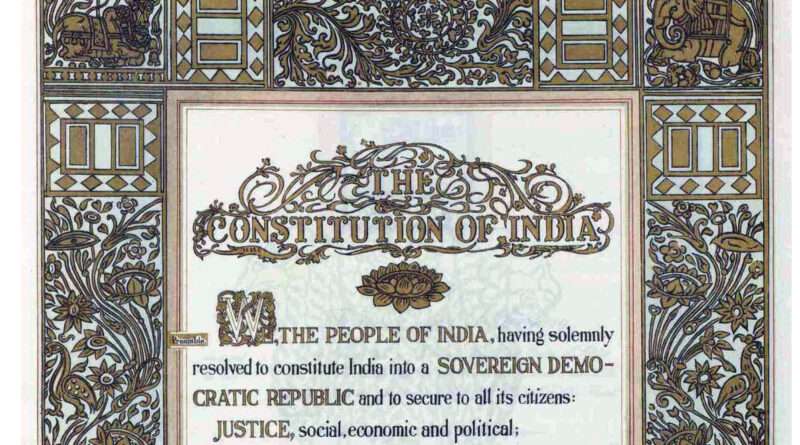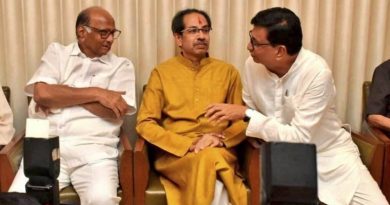The Constitution Has Been Amended 104 Times So Far
The constitution has been amended 104 times so far, know some major changes. Amendments have been made in the Indian Constitution from time to time if needed. There have been 104 amendments since the constitution came into force.
The Constitution was passed on 26 November 1949 and was formally implemented on 26 January 1950. The day of 26 November is celebrated as the Constitution Day of India.
So far 126 Constitution Amendment Bills have been brought in Parliament, out of which 104 Constitution Amendment Bills have been passed. The Constitution of India is the longest written constitution of any republican country in the world.
It took 2 years, 11 months, 18 days to complete the constitution.
From the reorganization of states on the basis of language to the reservation of poor upper castes, many amendments have been made in it. Let’s know about some important amendments in the last 71 years.
First Amendment
It was introduced in Parliament on 10 May 1951 by the then Indian Prime Minister Jawaharlal Nehru, which was passed in Parliament on 18 June 1951.
Under the First Amendment of the Constitution, some changes were made in the fundamental rights and the right to freedom of speech and expression was given to the common man.
Final amendment
The 126th Constitutional Amendment Bill was brought into Parliament on 2 December 2019. This was the 104th amendment to the Indian Constitution.
Under this, Article 334 of the Indian Constitution was amended and the period of reservation for Scheduled Castes and Tribes in Lok Sabha and Legislative Assemblies was further extended for 10 years. Earlier the limit of this protection was 25 January 2020.
Citizenship Amendment Bill 2019
In the year 2019, Parliament passed the Citizenship (Amendment) Bill 2019, which has become an act after the approval of the President.
The Citizenship (Amendment) Act, 2019 was brought to amend the Citizenship Act, 1955. The Citizenship Act, 1955 provides various grounds for obtaining citizenship.
10 percent reservation for general category
The 124th Amendment Amendment bill passed for giving 10 percent reservation to the economically weaker sections of the general class.
A total of 165 votes were polled in the Rajya Sabha in support of the bill, while seven people opposed it. At the same time, 323 votes were cast in the Lok Sabha while only 3 votes were cast against it.
Reorganization of states on linguistic basis
The Fifth Amendment to the Indian Constitution was enacted on 1956. This amendment reorganized the states on linguistic basis, eliminating the classification of states into the next three categories, dividing them into states and union territories.
In addition, the seats in the central and state legislatures were rearranged accordingly.
Defection law
The Tenth Schedule was added to the Constitution in 1985 through the 52nd Constitutional Amendment, known as anti-defection law. In this, a provision was made to terminate the membership of those who changed parties.
GST system implemented
The 101st Amendment was made in the Indian Constitution to introduce Goods and Services Tax in the country.
It aims to tie up a common market by removing financial barriers between states. It is a single national uniform tax levied on goods and services across India.
99th amendment declared unconstitutional by Supreme Court
The Supreme Court had declared the 99th constitutional amendment related to the formation of the National Judicial Commission unconstitutional.
The Supreme Court on 16 October 2015 repealed the NJAC Act, 2014, replacing the 22-year-old collegium system of judges appointed by judges. The five-judge constitution bench had decided by a majority of four each.




